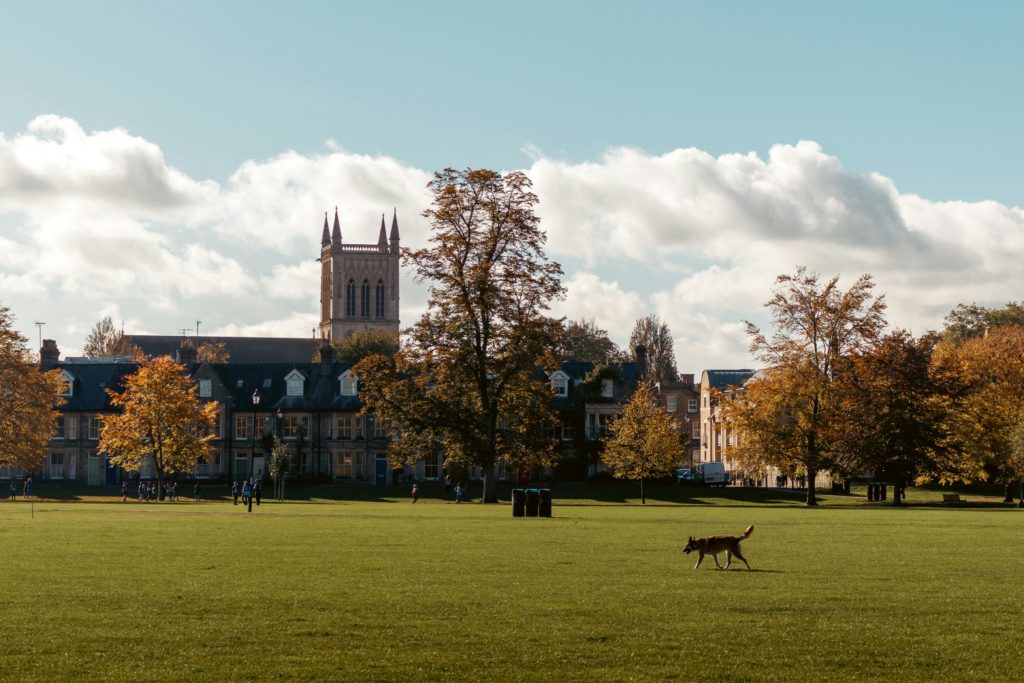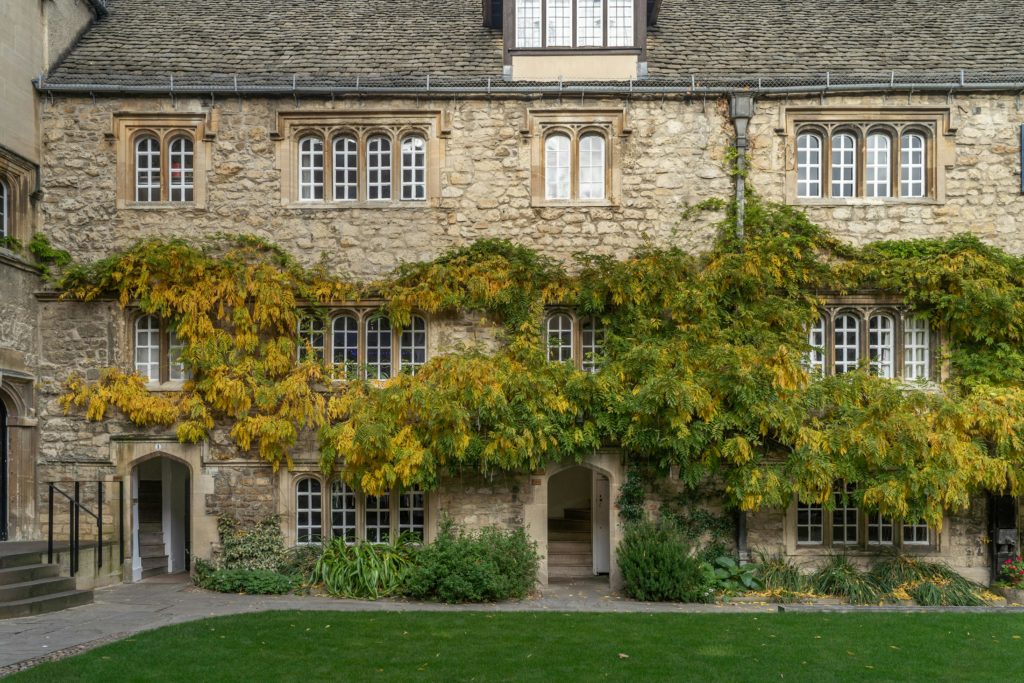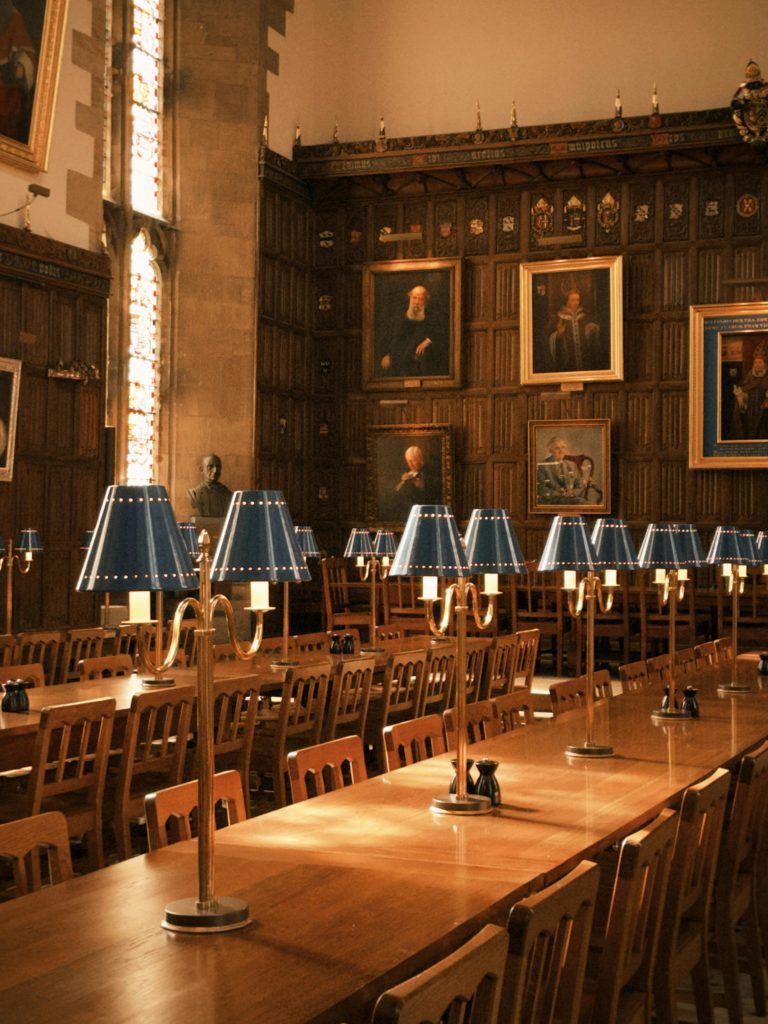University of Oxford
The Cambridge interview process is renowned for its intensity, designed to push students beyond their comfort zones and test how they think critically under pressure. At Enjoy Education, we offer bespoke, one-to-one interview preparation to help you navigate this challenging process with confidence.

What to Expect from a Cambridge Interview
Cambridge interviews tend to focus on academic discussion. The interviewers, often leading experts in their fields, are not only assessing your knowledge but also how you think, adapt, and explore unfamiliar ideas. Each interview is tailored to the student’s subject, with some including written or practical tasks.
For example, students have reported questions like:
- Engineering: “How would you design a bridge that could hold more weight than an average structure without increasing material use?”
- Economics: “Why don’t all countries print more money to pay off their national debts?”
Key Preparation Steps
- Master Your Personal Statement
Cambridge interviewers frequently refer to the personal statement. Students are expected to be able to elaborate on any books, theories, or experiences they have mentioned. Ensure that you can confidently discuss the topics you’ve highlighted. For example, our Director of Studies Liane was studying Pride and Prejudice as one of her A Level texts and was drawn into a conversation about whether Jane Austen was an ironic writer.
- Stay Updated on Subject-Specific News
Particularly for subjects like politics, economics, or geography, interviewers might use recent events or developments as a springboard for discussion. Stay informed on current affairs related to your field. Great places to look include the LSE Blogs (https://blogs.lse.ac.uk/), Politico (https://www.politico.eu/uk/?geo-redirect) and the Financial Times (https://www.ft.com/).
- Be Ready for Written and Practical Challenges
Some Cambridge interviews, involve practical tasks or problem-solving challenges. Familiarise yourself with subject-specific problem sets or past interview questions. For example, our Consultant Felicia was asked during her Geography interview at Cambridge to respond to a journal article on guerrilla warfare – whilst she wasn’t expected to know about the topic itself, the interview focused on analysis, bias, paper sources and impact on society.
- Multiple Mock Interviews
At Enjoy Education, we provide mock interviews conducted by Cambridge alumni who replicate the real interview environment. Practising with different tutors helps students adapt to the unpredictable nature and changing styles of Cambridge interviews.
- Thinking Aloud
The Cambridge interview is as much about your thought process as it is about your knowledge. Practice explaining your reasoning, especially when you’re working through unfamiliar problems. This approach will demonstrate your intellectual flexibility.
Example Cambridge Interview Questions by Subject
- Law: “Should there be a right to offend in free speech?”
- Natural Sciences: “Explain the thermodynamics of why a hot cup of tea cools down when left out.”
- History: “What are the ethical implications of how we record historical events?”
- Medicine: “Why do we give antibiotics to humans, but not to plants?”

Final Cambridge Interview Tips
- Don’t Be Afraid to Admit When You Don’t Know Something
Cambridge interviewers are testing how you respond to unfamiliar ideas. If you don’t know the answer to a question, admit it and explain how you would approach the problem instead. Be curious about the Professor’s take on the issue, how it is being studied in the department and whether this might be something included in the Undergraduate degree.
- Take Your Time to Think
It’s better to take a moment to formulate a thoughtful response than to rush into an answer. Silence can feel uncomfortable, but using that time wisely shows that you’re considering the question carefully.

Cambridge interviews are designed to push you to think critically, engage deeply with your subject, and adapt to new ideas. Get in touch with Enjoy Education to book a bespoke Cambridge interview preparation session today. Our tutors, many of whom are Cambridge alumni, are here to provide personalised guidance to help you succeed.
The Oxford interview process is unique, designed to replicate the tutorial-style discussions that form the backbone of learning at the university. For students, this represents both an exciting and challenging opportunity to demonstrate intellectual potential, critical thinking, and adaptability. At Enjoy Education, we offer expert, one-on-one interview coaching from Oxford alumni who tailor their guidance to your subject and academic interests.

What Makes Oxford Interviews Different?
Oxford interviews are known for being probing and thought-provoking, often testing students on how they think rather than what they already know. The tutorial style means the interviewer may present unfamiliar problems or topics, and the student’s task is to work through them logically. This style of questioning requires students to think aloud, express uncertainties, and adapt to new ideas in real-time.
Typical Structure of an Oxford Interview
The interviews vary slightly by subject but usually follow a similar format:
- Sciences/Maths: Problem-solving challenges where students are asked to reason through unfamiliar problems or explain concepts in a step-by-step manner.
- Humanities/Social Sciences: Discussions that explore philosophical questions, analyse texts or historical sources, or debate ethical dilemmas. Often, students are asked to provide their interpretations on the spot.
For instance, past interviewees have been asked:
- Philosophy, Politics and Economics (PPE): “If you could change one aspect of modern society, what would it be and why?”
- Physics: “How would you measure the height of a skyscraper with a barometer?”
Key preparation steps
1. Know Your Personal Statement
The personal statement often serves as a launching pad for interview questions. Interviewers may ask students to explain or expand upon the books or ideas they’ve mentioned. Ensure you’ve thoroughly reviewed your statement and are ready to discuss any topics you’ve referenced in depth.
2. Read Around Your Subject
Oxford looks for students with genuine intellectual curiosity, so demonstrate that by engaging with extra reading, podcasts, and lectures. Stay updated on recent developments in your field, especially for subjects like politics, economics, or science.
3. Practice Thinking Aloud
The interview is not just about arriving at the right answer but demonstrating your reasoning. Practice explaining your thought process out loud when tackling challenging questions. This shows the interviewers how you think and approach complex problems.
4. Mock Interviews
Multiple mock interviews are key to success. At Enjoy Education, we tailor mock interviews to mimic the actual Oxford interview format. Practising with different interviewers prepares students for varied questioning styles and helps them stay calm under pressure.
5. Understand the Tutors’ Research
If possible, research your interviewers or the faculty in your chosen college. Knowing about their academic work can help you guide the conversation towards topics that genuinely interest you.
Example Oxford Interview Questions by Subject
- Biology: “Why do lions have manes?”
- Mathematics: “Can you estimate how many piano tuners there are in the UK?”
- English Literature: “Is war a necessary theme in literature, or can great literature be written about peace?”
- Medicine: “Why don’t humans have tails?”

Final Oxford Interview Tips
1. Stay Calm and Take Your Time
Interviewers are looking for students who can stay composed under pressure. If you need time to think, don’t be afraid to ask for a moment. Interviewers understand that processing complex questions takes time.
2. Be Yourself
Oxford values individuality and authenticity. Be genuine in your responses, and don’t try to mould yourself into what you think an ‘ideal’ candidate looks like. Let your passion for your subject shine through.
Oxford’s interview process is a test of intellectual resilience and curiosity.

Contact Enjoy Education today to book a bespoke Oxford interview preparation session. Our expert tutors, many of whom are Oxford graduates, are here to help you maximise your chances of success.

As the Oxbridge application deadline looms, now is the time to focus on the final steps that will ensure your child submits the strongest possible application. While much of the preparation may already be complete, these next few days are crucial. We’ve put together a practical, time-sensitive checklist to guide students and parents through the final stages, ensuring nothing is left to chance.
1. Finalise Your Personal Statement
At this stage, your personal statement should be mostly written, but now is the time to give it a final polish. Here’s what to focus on:
- Passion and Clarity: Is the statement a true reflection of your child’s enthusiasm for the course? Make sure it clearly conveys their academic interests, relevant experiences, and future aspirations.
- Flow and Structure: Ensure the statement reads smoothly and logically. Each paragraph should build on the last, creating a cohesive narrative.
- Proofreading: Typos or grammatical errors can be costly. Have someone – whether a teacher, a tutor, or a family friend – read through the statement to catch any last-minute mistakes.
At Enjoy Education, our Oxbridge consultants can provide a professional last-minute review, offering critical feedback to refine personal statements and ensure they stand out.
2. Confirm References are Submitted
The reference letter is a key part of any Oxbridge application. By now, your child’s chosen referees should have written and submitted their letters. However, it’s always worth a final check.
- Double-check submission status: If your referee hasn’t submitted the reference, follow up immediately. Some schools have internal deadlines, so make sure all parts of the application are complete before the UCAS deadline.
- Content review: If possible, confirm that the reference highlights your child’s strengths and potential, providing strong, specific examples.
If your child is homeschooled or applying independently, our experienced tutors can be their referee. Our Director of Studies, Liane, will work with them to ensure they understand how to craft a compelling letter.

3. Prepare for Admissions Tests
Many Oxbridge courses require admissions tests, such as the TSA, MAT, or LNAT. If your child’s course requires one of these, ensure they are ready for the exam with these urgent tips:
- Understand the Format: Each test is different. Make sure your child is familiar with the format and content of their specific test. Cambridge and Oxford’s admissions pages offer detailed guides and practice papers.
- Do a Final Practice: It’s not too late to sharpen test-taking skills. Spending time on past papers can significantly boost performance by making students more comfortable with the types of questions they’ll encounter.
At Enjoy Education, we provide last-minute exam preparation sessions with specialised tutors who are familiar with Oxbridge admissions tests. These sessions focus on test strategy, time management, and key content areas.
4. Last-Minute Interview Preparation
Oxbridge interviews can feel intimidating, but they’re an opportunity for students to demonstrate their thinking process and passion for their subject. Here’s how to help your child prepare in the final days:
- Review Common Questions: Look up subject-specific interview questions. Many Oxbridge tutors and consultants share their experiences, so reviewing potential questions is a great last-minute strategy. In an Oxbridge interview, admissions tutors are primarily looking for intellectual potential, academic curiosity, and the ability to think critically and flexibly. For example, Felicia, one of our consultants, studied A Level Geography and Art and was asked to debate on the topic of ‘how Art and Geography relate’ in her Cambridge interview.
- Mock Interviews: If time allows, arrange a mock interview. Practice helps students feel more comfortable and articulate when facing the real thing.
Our Oxbridge admissions consultants, some of which are former Oxbridge interviewers, provide expert interview guidance. Mock interview sessions are invaluable for building confidence and receiving feedback on how to approach complex questions.

5. Submission Logistics
One of the most common mistakes applicants make is missing the deadline due to technical issues. Avoid any last-minute panic by:
- Checking UCAS: Ensure all components of the application are uploaded correctly, including the personal statement, reference letters, and course choices.
- Allowing Time for Submission: UCAS can experience heavy traffic in the final hours before the deadline, so aim to submit the application at least 24 hours early to avoid any system crashes.
UCAS Application Advice: UCAS Application Checklist – This official UCAS checklist ensures that no part of your application is missed, helping you double-check everything from personal statements to referee details.
For personalised guidance, our Oxbridge admissions consultants can help your child make the most of these final days. Whether it’s personal statement feedback, admissions test practice, or interview coaching, we ensure that every part of the application is ready for submission.
6. Managing Stress in the Final Days
It’s easy for students to feel overwhelmed at this point. The key is to maintain perspective and manage stress effectively. Encourage your child to take short breaks, eat well, and get enough sleep.
At Enjoy Education, we also offer well-being support through academic mentoring. Our tutors understand the pressures of applying to Oxbridge and can provide reassurance and guidance in these final days.

They’ve Got This
The Oxbridge application process is undoubtedly demanding, but the final steps are about ensuring your child presents themselves in the best possible light. Stay organised, focused, and calm. Your child’s preparation will pay off.
For urgent, last-minute support, contact Enjoy Education for personalised Oxbridge preparation with our specialist tutors and consultants. Our bespoke approach can provide your child with the edge they need.